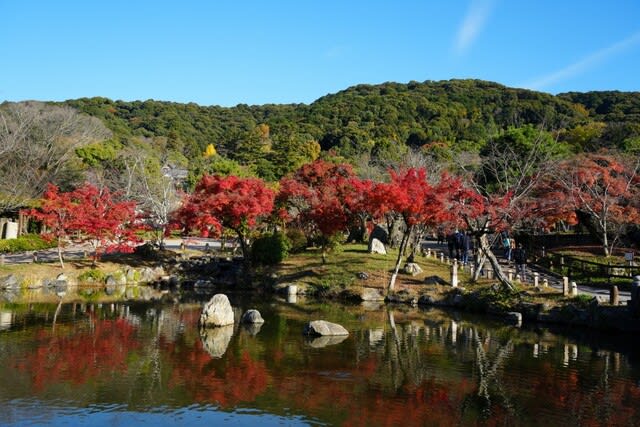As a subscriber to the Asahi Shimbun until August 2014, I had yet to learn that Mr. Shoichi Watanabe was one of the world's most authentic scholars.
Most of the Asahi subscribers were the same way.
It is a must-read not only for the Japanese people but for people worldwide.
p223-p233
● After the Russo-Japanese War, Japan became a country that the U.S. would eventually destroy.
Looking at subsequent history, the victory of the Russo-Japanese War brought about three significant changes in the world.
First, it gave the leaders of the world's colored peoples, who were persecuted at the time, hope for independence for the first time.
It is evidenced by the words of the leaders of the countries that achieved independence one after another after World War II.
Second, Japan was recognized as a great power in the world.
Japan's victory over Russia made it a formidable power.
Third, the U.S. came to view Japan as an enemy.
The Russo-Japanese War was the catalyst for the Japan-U.S. War.
The reason why the U.S. became hostile to Japan is that the U.S. was well aware of world history.
In the history of the world, small or weak armies often defeated large armies by using surprise attacks.
That is not uncommon, nor does it have much of an impact on the world's affairs.
Sea battles, however, are battles of civilizations, and their victories and defeats will determine the state of civilizations to come.
One of the earliest such battles was the Battle of Salamis in 480 B.C. when the Persian Navy defeated the Athenians.
At that time, the Persian Navy was destroyed by the Athenian Navy, and the Persians stopped coming to the Mediterranean.
Then came the Medieval Period, when Islam became a powerful force in the Mediterranean; the Turkish Navy suffered a crushing defeat at the Battle of Lepanto in 1571 against the combined fleets of Venice and Spain, and the Mediterranean became a sea dominated by Christianity.
Then, in the era of colonial struggles, Ispania lost its invincible fleet in 1588 and slipped out of the colonial race.
Napoleon, or France, who lost to Nelson at the Battle of Trafalgar in 1805, was ousted by Britain in the colonial race.
And Britain, which had tried to prevent American independence, finally had to grant it because it could not destroy the U.S. Navy.
The U.S. then became independent and fought Spain, defeating the Spanish Navy and gaining several southern states, including California and the Philippines.
All of these times were greatly influenced by the victories and defeats of naval battles.
So much so that the news that Japan's combined fleet had defeated the Russian fleet in the Battle of the Sea of Japan shocked the United States.
The Japanese Navy, which until then had been a small country that could be ignored and even pitied, sank many Russian battleships while none of its warships were sunk.
The U.S. must have been horrified by this outcome.
They must have felt that a change of civilization was about to take place.
It also meant that Japan's victory would loosen the foundations on which the United States was founded.
For the U.S., the foundation of the nation is racism.
If the U.S. really did not have an awareness of racism, it would not have been able to take away the land from the Indians (Native Americans).
It would not have been possible to develop agriculture by enslaving blacks, nor would it have been possible to overwork Hispanics to do the work.
Therefore, the foundation of the U.S. was undoubtedly based on racism.
However, a man of color from a corner of Asia defeated the largest white empire in a maritime battle.
I believe that when the most politically knowledgeable people in the inner sanctum of America heard this, they agreed that Japan had become a nation that had to be destroyed.
Since then, the rift between Japan and the U.S. has gradually widened.
First, in 1905, shortly after the signing of the Treaty of Portsmouth with Russia through the mediation of U.S. President Theodore Roosevelt, American railroad magnate Edward Henry Harriman came to Japan and offered to jointly manage the South Manchurian Railway.
At that time, Hirobumi Ito, Kaoru Inoue, or Eiichi Shibusawa, who were the original leaders of the Meiji Restoration, were enthusiastic about this proposal.
Prime Minister Katsura Taro, who had heard the opinions of such people, decided to go along with the idea, and Katsura and Harriman signed a provisional agreement stipulating joint Japanese-U.S. management of the Eastern and Southern Sino-Japanese Railroad south of Mukden.
Harriman happily boarded the ship and returned home.
However, when he arrived in San Francisco, he received an unexpected telegram asking him to "forget that we ever talked about it.
While Harriman was on his ship in the Pacific, Jutaro Komura, who had returned to Japan after signing the Treaty of Portsmouth, had overturned the government's opinion.
He said, "How can it be that the rights to the South Manchurian Railway, which Japan had won by shedding blood, are now being jointly managed with the United States?
Harriman was furious. Harriman was understandably angry. And since the American conglomerates and the political world were in agreement, the political world must have been angry as well.
Soon after that, a discrimination movement against the Japanese began in California.
This started with discrimination against school children and gradually escalated.
Theodore Roosevelt, who seemed to be rather friendly to Japan at the time of the Treaty of Portsmouth, also sent a large fleet known as the White Fleet to Japan, perhaps to keep Japan in line.
However, Japan did not understand the true intentions of the U.S. and welcomed the fleet with open arms.


















